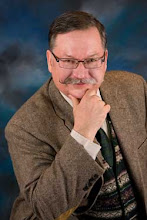
In January of 1812, Massachusetts Governer Elbridge Gerry (pronounced with a hard 'G') reluctantly signed a bill redefining political district boundaries in his state. In so doing, he inspired a cartoonist for the Boston Gazette, and much to his chagrin introduced a word into common usage which forever linked his name with the process of manipulating political boundaries to influence election results.
A marvel of applied statistics, Gerrymandering has been with the United States since the very beginning. The basic concept is simple - by carefully moving district boundaries, political allies can be concentrated to do the most good, and rivals spread out to dilute their influence.
When I first learned all this in Mildred Homan's 8th grade history class, I did not grasp the cautionary tale, and believed Gerrymandering an obsolete practice. As a lifelong resident of the Chicago area, I have since learned that the Gerrymander is alive and well. But recently, I learned of a much more subtle variation on the concept.
An NPR story describes efforts of Liberty University in Lynchburg, Virginia, to mobilize student voters. Founded by the late Rev. Jerry Falwell, Liberty is an Evangelical University with a conservative leadership and student body. And they are doing a very effective job of encouraging their ten thousand resident students to register to vote.
I don't have a problem with that. In fact, it is admirable. All learning institutions should encourage their students to participate in the political process. Liberty is carefully not advising its students how to vote, but has been very successful at registering student voters. The reason is a bit of an eyebrow-raiser; Virginia has a tight presidential race. Ten thousand votes could conceivably determine whether Virginia's electoral votes go to Barack Obama or John McCain. As a conservative institution, Liberty would like McCain to emerge the victor.
This is all legal, and not really a big deal. If an election outcome is determined by voter apathy on one side or the other, then the voters got what they asked for. Nobody is telling liberal colleges not to encourage voter registration.
What bothers me are the comments of a single Liberty student. Quoting from the NPR story:
[A Liberty Junior], for example, switched her registration from North Carolina to Virginia. The reason was simple.
"North Carolina is going to go red," she says. "I'm not really too worried about that, and I am nervous about the outcome of Virginia. I feel like my vote may be a little more important here."
This particular student, and likely many more like her, are not full-time Virginia residents. But rather than vote as an absentee in her home jurisdiction, she is voting in Virginia, with a stated reason which says, in effect, that she believes her vote can help overrule the will of full-time Virginia residents.
It's perfectly legal, but it strikes me as rather Machiavellian. While our electoral system is far from perfect, the basic concept is supposed to provide for the voices of all to be heard. Arbitrarily moving voter populations around for the express purpose of suppressing those voices seems, to me, somehow wrong. There is no established residency, at least as far as we can tell. Shouldn't the votes be cast in the student's home jurisdiction?
Or is this just an example of an all-American need to win?
This bothers me, but I don't have an answer. Do you?
